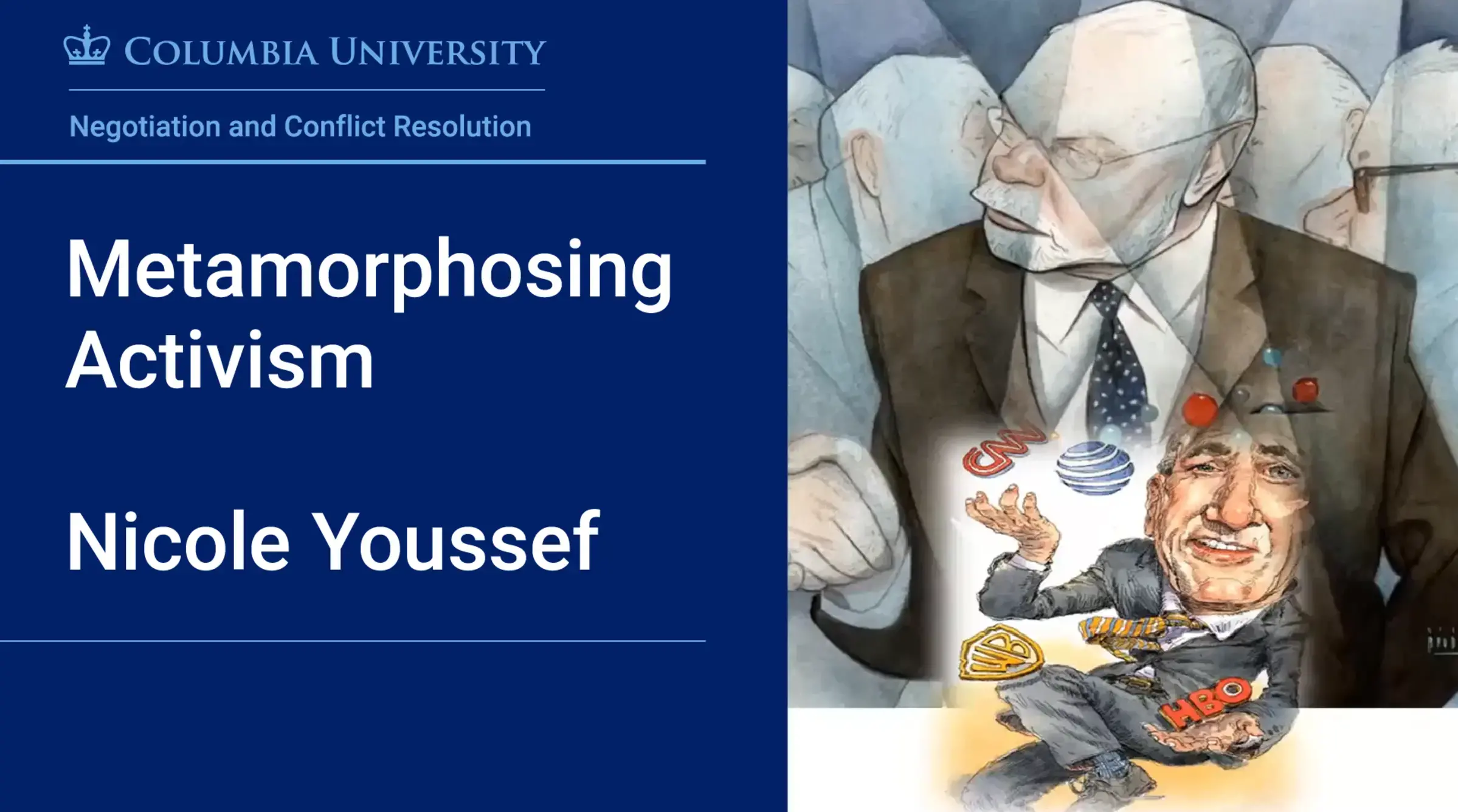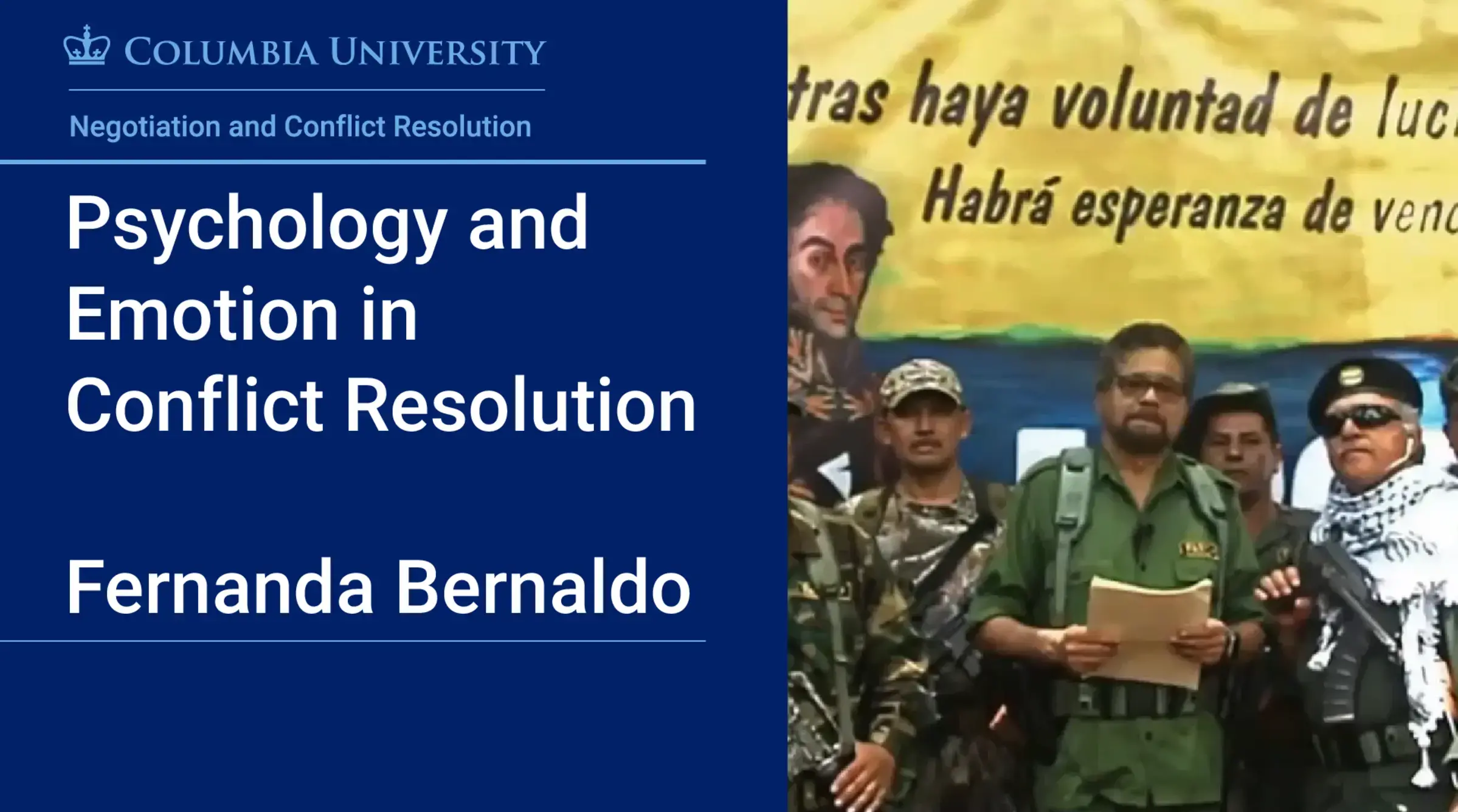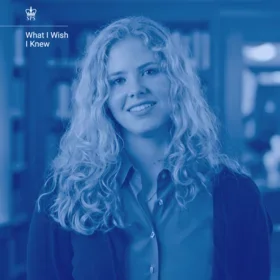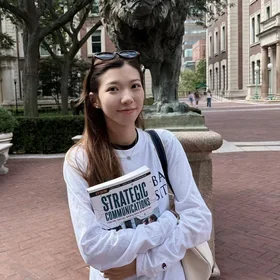Three Negotiation and Conflict Resolution students, Nicole Youssef Gegenheimer, Fernanda Bernaldo, and Lindsey Jones, speak about their experiences with the capstone sequence in the program. They offer advice for future students, highlight the focus of their projects, and discuss what it is about the capstone sequence that makes it such a memorable, useful part of the program.
Nicole Youssef Gegenheimer’s capstone topic, “Metamorphosing Activism,” studied the intersection of the new trend of vertical acquisitions and activist investing in telecom companies.
Nicole Youssef Gegenheimer presenting, “Metamorphosing Activism,” December 2020.
She chose a real life case study to bring the topic to life. “Choosing the right research methodology with the convenient conflict tools, then picking the right lens of theories to look closer at the conflict and analyze it bit by bit to finally advise on an intervention,” Gegenheimer said, “[that] was an amazing experience throughout the program.”
Fernanda Bernaldo did her capstone on “Psychology and Emotion in Conflict Resolution: Combatting the Effect of Trauma on Community Building in the Colombian Conflict.” Her work provided a look into why the most vulnerable victims of a conflict were so opposed to the peace deal that aimed to end a decades-long period of violence.
Fernanda Bernaldo presenting, “Psychology and Emotion in Conflict Resolution: Combatting the Effect of Trauma on Community Building in the Colombian Conflict,” December 2020.
She said that the most effective part of the capstone process for her was “the value of naming tools.” “It eliminates miscommunications, misunderstandings, and assumption-making, and in turn helps combat bias,” Bernaldo said.
Lindsey Jones’ capstone work focused on conflict in the hospital context at the end of life. Of the capstone experience, she said, “It brought home the responsibility of intervening, in order to make an impact. The importance of carefully considering the unintended consequences of such interaction was made clear.”
When asked what advice they would offer to future participants in the capstone, these students had this to say. “Ask as many questions as you can because for every question, there is a ton of information you can receive as an answer. Enjoy it as much as you can,” said Gegenheimer. Bernaldo focused on a different aspect. “Don't think you need to establish a research question at the very beginning before you thoroughly research and understand the problem,” she said. “There are many narratives and nuances in conflict, so answering a question that comes up when understanding the origin of the problem is more valuable because you are exploring something new.” Jones advises speaking to students further along in the capstone sequence to get “a more holistic view of the process.”
Learn more about the M.S. in Negotiation and Conflict Resolution program.




